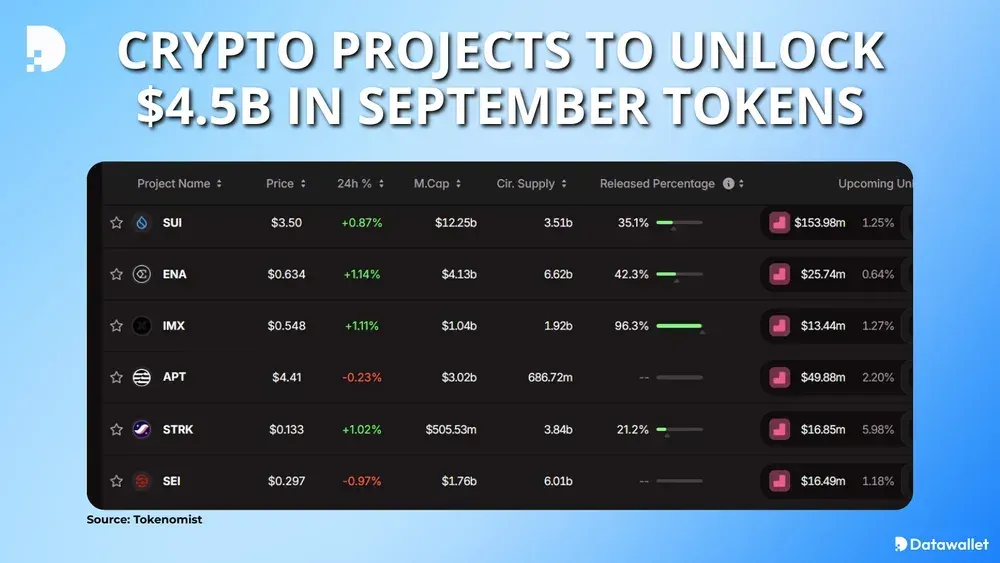The US Starts Putting Economic Data on Bitcoin & Ethereum

GM. The US government has begun publishing GDP and inflation data directly on blockchains, including Bitcoin, Ethereum, and Solana, with Secretary Lutnick calling it a historic moment.
Meanwhile, the CFTC opens a path for foreign crypto exchanges to serve US users, Tether brings USDT to Bitcoin, and Solana proposes an upgrade targeting 150-millisecond finality.
A big week closes with data onchain, rules expanding, and networks pushing new limits. 👇
The US Starts Putting Economic Data on Bitcoin & Ethereum
The Department of Commerce began posting economic statistics on public blockchains, starting with GDP and inflation numbers. Secretary Howard Lutnick called the initiative historic, insisting America’s economic truth should be immutable and globally accessible without compromise.
The rollout involved Bitcoin, Ethereum, Solana, TRON, Stellar, Avalanche, Polygon, Arbitrum, and Optimism, each anchored with cryptographic transaction hashes. Chainlink and Pyth oracles delivered the feeds, making official data instantly usable across DeFi, token markets, and prediction platforms.
Lutnick previewed the initiative earlier this week, crediting President Trump’s blockchain agenda with creating momentum for this sweeping experiment. Coinbase, Gemini, and Kraken helped execute the release, purchasing cryptocurrency needed to cover transaction costs across multiple supported networks.
Officials clarified this system supplements traditional releases, rather than replacing them, by creating a second channel for validated distribution. They signaled future expansion, with labor market figures and price indices next candidates for blockchain publication to boost transparency.
The CFTC Welcomes Foreign Crypto Exchanges
The Commodity Futures Trading Commission has stated non-US crypto firms can register as Foreign Boards of Trade. Acting Chair Caroline Pham said this path allows firms previously operating abroad to directly serve American customers again. She emphasized the approach does not change policy but reminds companies of existing regulatory access to US markets.
The advisory clarified that eligible firms like Binance must be strongly regulated in their home countries before receiving FBOT status. Companies gain customer access without registering as US contract markets, broadening opportunities for efficient crypto derivatives trading. Pham called the initiative part of the regulator’s “crypto sprint,” supporting President Trump’s push for expanded digital asset frameworks.
Tether Launches USDT on Bitcoin with RGB Protocol
Stablecoin issuer Tether will deploy its USDT token on Bitcoin using the Layer 2 RGB protocol. The integration allows transactions directly on Bitcoin’s network, adding native stablecoin payments to the world’s largest blockchain. Tether said RGB will make Bitcoin foundational for everyday use by offering lightweight, private, and scalable transactions.
The launch follows Tether’s earlier Bitcoin Lightning integration, reinforcing the company’s expansion across multiple blockchain ecosystems. CEO Paolo Ardoino said users will manage BTC and USDT within a single wallet, including offline capability. Analysts noted the decision comes alongside growing stablecoin adoption, with forecasts predicting substantial market capitalization growth through 2026.
Solana Proposes Upgrade for 150-Millisecond Finality
Solana developers introduced the Alpenglow proposal this week, seeking to overhaul consensus with faster architecture and new protocols. A direct-vote system named Votor would reduce block finality from 12.8 seconds to just 150 milliseconds. Rotor, a complementary data-sharing mechanism, is designed to optimize bandwidth for demanding sectors such as gaming and decentralized finance.
The proposal also incorporates resilience features, ensuring operations continue despite enormous validator failures or adversarial conditions. According to published figures, voting has begun with nearly 20% participation recorded across validators. Solana’s community must reach a 33% quorum before approval, highlighting strong interest in scaling improvements and network stability.
Data of the Day
Tokenomist data shows nearly $4.5 billion in vested cryptocurrency tokens will be unlocked throughout September. The largest portion, $3.36 billion, comes from linear unlocks, while another $1.17 billion is tied to cliff releases. Analysts said such events can disrupt markets, with cliff unlocks posing greater supply shocks compared to gradual linear schedules.
Sui leads September unlocks with $153 million, followed by Fasttoken, Aptos, and Arbitrum releasing tens of millions. Smaller projects, including Starknet, Sei, and Immutable will add tokens worth between $10 million and $17 million. Analysts suggest investors increasingly evaluate fundamentals rather than panic, signaling a maturing perspective toward token unlock economics.

More Breaking News
- PumpFun repurchased about 15 million dollars of PUMP in two weeks, lifting its market cap above 1 billion dollars as daily fees topped 1 million.
- Aave relaunched its institutional platform as Horizon, allowing companies to post tokenized Treasurys as collateral to borrow stablecoins under full compliance rules.
- Sony’s Soneium blockchain launched “Soneium Score,” a system tracking streaks, liquidity, NFTs, and partner activity to reward real user participation across the ecosystem.
- Ethereum ETFs drew 1.83 billion dollars in five days, over ten times Bitcoin funds, reflecting accelerating institutional adoption of Ethereum products.
- The Clearing Company raised 15 million dollars from Coinbase, USV, and Haun to build regulated onchain prediction markets competing directly with Kalshi and Polymarket.
- Rain secured 58 million dollars from Sapphire and Samsung to expand Visa-powered debit and credit cards connecting stablecoins to everyday commerce globally.
- Philippine Senator Bam Aquino proposed legislation to place the national budget on blockchain, enhancing transparency and allowing citizens to trace every peso spent.
For the latest updates on digital asset markets, follow us on X @Datawalletcom.
.webp)
Written by
Jed Barker
Editor-in-Chief
Jed, a digital asset analyst since 2015, founded Datawallet to simplify crypto and decentralized finance. His background includes research roles in leading publications and a venture firm, reflecting his commitment to making complex financial concepts accessible.







